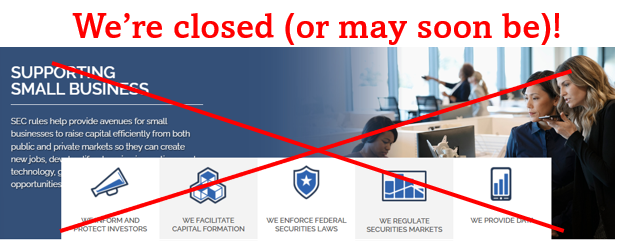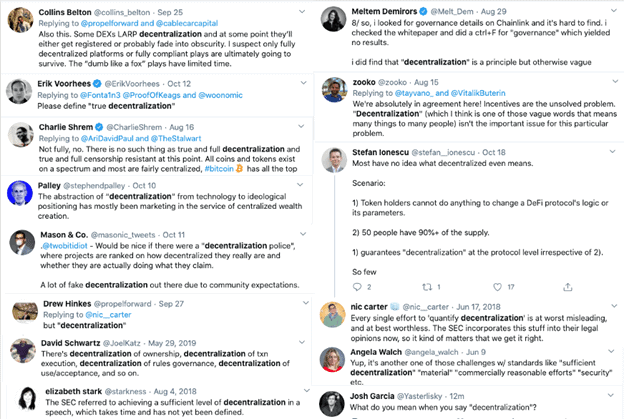

Inbound: SEC Proposal on Regulation D Reforms
The SEC is likely to soon propose substantive amendments to Regulation D
NYDFS Proposes Enhanced Requirements for Cryptocurrency Listings
The NYDFS has (1) proposed updates to its guidance for virtual currency companies seeking to list new cryptocurrencies, and (2) instituted a new General Framework for Greenlisted Coins that replaces the previous Greenlist process.

Ketsal Expands its Web3 Regulatory Practice, Adding New Partner to Support Compliance On-Chain
New York, NY, February 22, 2023 – Ketsal, a full-service legal and consulting firm specializing in Web3 and fintech compliance, is expanding its regulatory practice with the addition of a new partner, Andrew W. Grant. The addition of Grant will provide Ketsal with valuable industry expertise and an extended network in the regulatory space, contributing to the company’s mission of supporting compliance on the blockchain.
Props for the “Reg A” Reality: A lesson in digital asset securities offerings
It pains me to say it, but Open Props’ recent announcement of the coming termination of its ongoing Regulation A (“Reg A”) digital asset securities (Props) offering and the cessation of support for its Props Loyalty Program leads me to one stark conclusion.

Quantifying Blockchain Network Centralization
“Decentralization” doesn’t mean anything. It should mean something, given its popularity in discourse surrounding blockchain technology. Many projects aim for it as a target, but none can even provide a location for the firing range. We identified that as a problem in mid-2019 and thought, somewhat ambitiously, we should try to find a solution.

Ketsal and Hailey Lennon Comments on NYDFS’s Proposed Conditional BitLicense Framework
On the fifth anniversary of the BitLicense’s introduction, the New York State Department of Financial Services (“DFS”) announced that it was proposing to introduce a conditional BitLicensing framework pursuant to the DFS Superintendent’s authority under 23 NYCRR 200.4(c) and that it was seeking comments regarding the proposed framework. Under the conditional BitLicense framework, new entrants may work in collaboration with an existing BitLicensee or a holder of a NY limited purpose trust charter to conduct virtual currency business activity in New York, before eventually applying for a full BitLicense.

Our Comments to the OCC on Digital Currencies and Bank Innovation
The Office of the Comptroller of the Currency (“OCC”) published an advanced notice of proposed rulemaking (“ANPR”) on June 4. The ANPR invited comment on its regulations at 12 C.F.R. Part 7, Subpart E and 155, and any other banking issues related to digital technology and innovation.
Ketsal Partner Peter Luce is Quoted in Bloomberg Law Article on Crypto Custody
“State-chartered banks, particularly “challenger banks” that have positioned themselves as service providers to the fintech industry, are likely to ask the Federal Deposit Insurance Corp. to take similar action as the OCC, said Peter Luce, partner at Ketsal PLLC, based in Washington. Without the FDIC’s blessing, smaller banks are reluctant to deal with the uncertainty that comes with supporting crypto custody and wallet services, Luce said.

Unclaimed Property Laws And Virtual Currency Custodians: Part Two
We examine how unclaimed virtual currencies, airdrops, and hard forks can implicate unclaimed property laws. In addition, we explore the unresolved issue of how one might escheat virtual currencies to state agencies. For an introduction to unclaimed property law, see Unclaimed Property Laws And Virtual Currency Custodians: Part One.

SEC and DOJ Charge Startup with Defrauding Investors
This week, the Securities Exchange Commission (“SEC”) charged a small, California-based private company (YouPlus, Inc., or “YouPlus”) and its CEO with violating antifraud provisions of the federal securities laws by making false and misleading statements about the company’s finances and sources of revenue.1 In a parallel action, the U.S. Department of Justice (“DOJ”) announced criminal charges against the CEO for wire fraud and securities fraud following an investigation by the Federal Bureau of Investigation.2

Unclaimed Property Laws And Virtual Currency Custodians: Part One
Companies with untouched virtual currencies in inactive accounts may find themselves in violation of state law and subject to, surprisingly, private actions. Part One of this series lays the foundation for why these laws matter to custodians, including some virtual currency exchanges, operating in the U.S.

Proposed Rules on Facilitating Capital Formation and Expanding Investment Opportunities
The U.S. Securities and Exchange Commission recently proposed a number of amendments to its capital formation rules. The proposed amendments focus on certain aspects of exempt offerings—that is, securities offerings that don’t need to be registered with the SEC. We submitted a letter to the SEC laying out some of our thoughts on the proposed rules. You can read our comment letter here.

#5 Did You Know: Blue Sky Preemption
Like the Securities Exchange Commission (“SEC”) at the federal level, states have their own jurisdiction over securities offerings conducted within their boundaries. This can sometimes result in overlapping or additional disclosure requirements and duplicative or merit-based offering reviews by state securities regulators that can potentially add time, cost, and uncertainty to the offering process. For these reasons, in the 1990s, Congress enacted legislation that provided for the preemption (i.e., inapplicability) of state securities laws registration and qualification requirements in certain instances and delegated the SEC the authority to unilaterally do the same in limited circumstances. In 2012, Congress passed the Jumpstart Our Business Startups Act, which directed the SEC to promulgate new rules and added new instances of preemption to the federal securities laws.

#4 Did You Know: Reg A Exemption has Two Tiers
Reg A is an exemption from registration under the Securities Act of 1933 (the “Securities Act”) that allows companies to publicly offer and sell securities in two similar, yet meaningfully distinct, ways:
Tier 1: for securities offerings of up to $20 million in a 12-month period; and
Tier 2: for securities offerings of up to $50 million in a 12-month period.

Capital Raising Under Regulation CF Just Became (Temporarily) Easier
The temporary final rules are intended to expedite the offering process for small businesses affected by COVID-19 by providing tailored, conditional relief from certain requirements of Reg CF.

#3 Did You Know: Notice of Qualification
Regulation A (“Reg A”) is an exemption from registration under the Securities Act of 1933 (the “Securities Act”) that allows companies to publicly offer and sell up to $50 million in securities annually to retail investors. But while Reg A offerings are exempt from registration, issuers who wish to take advantage of the exemption must qualify a substantive offering document (an offering statement on a Form 1-A) with the U.S. Securities and Exchange Commission (the “SEC”).

#2 Did You Know: Eligible Securities
Regulation A (“Reg A”)[1] is a great way for smaller companies to raise funds through the sale of securities — up to $50 million a year — including companies wishing to issue securities tokens. It offers a number of benefits to such companies, including the ability to (1) sell unrestricted (i.e., freely transferable) securities (2) on a continuous basis over time (3) to a variety of investors, regardless of their income or wealth (4) without having to register the securities at a state-by-state level.

#1 Did You Know: Eligible Issuers
Regulation A (“Reg A”)[1] is a great way for smaller companies to raise funds through the sale of securities — up to $50 million a year — including companies wishing to issue securities tokens. It offers a number of benefits to such companies, including the ability to (1) sell unrestricted (i.e., freely transferable) securities (2) on a continuous basis over time (3) to a variety of investors, regardless of their income or wealth (4) without having to register the securities at a state-by-state level.
